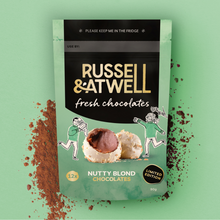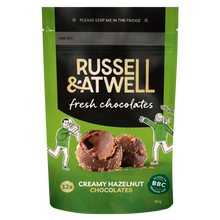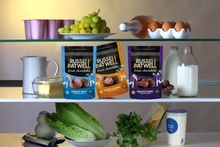While King Henry VIII’s court was known for its extravagant banquets and lavish Christmas celebrations, life for commoners in Tudor England was vastly different.
The common folk did not have access to the vast riches of the monarchy, but Christmas was still a time for feasting, family, and merriment, albeit on a much humbler scale.
For most people, Christmas was one of the few times of the year when they could indulge in special foods and take a break from their usual diets of bread, pottage, and vegetables.
The Setting: Homes and Hearths
Commoners during the reign of Henry VIII typically lived in simple homes, often with a single large room that served multiple purposes. Their Christmas celebrations centred around the hearth, the warm heart of the home, where most of the cooking and gathering took place. Homes would be decorated modestly, with greenery such as holly, ivy, and mistletoe—symbols of good fortune and protection.
Although lacking the pomp of courtly feasts, Christmas was a joyous occasion for ordinary people. It was a time for community and family gatherings, singing, dancing, and, importantly, feasting. The Twelve Days of Christmas, which stretched from 25th December to 6th January (Twelfth Night), provided common folk with an extended period of celebration, marked by local customs and traditions.
The Feast: Simple Yet Festive
A Christmas feast for commoners would have been far simpler than the banquet tables of Henry VIII’s court, but it was still a time to indulge in foods that were not part of everyday meals. Most people lived off the land and made do with what they could grow or raise themselves. For Christmas, however, they might set aside special ingredients or save up to purchase foods reserved for this festive occasion.
Meat: A Rare Treat
Meat, especially fresh meat, was a rarity for the lower classes. However, for Christmas, even commoners would try to include some kind of meat on their tables. Many would have slaughtered an animal for the occasion, typically a pig, as pork was more commonly available to rural families. Pork pies, sausages, or roast pork might have graced the table. For those with access to game, a rabbit or hare might be roasted, providing a special feast for the family.
Goose was another popular choice for Christmas. Unlike the wealthy, who dined on swan or peacock, many commoners could afford a goose if they had saved for the occasion. Geese were commonly raised in the countryside, and they provided a good-sized bird to feed a family or even a community gathering. It was often stuffed with simple ingredients such as onions, herbs, and oatmeal to stretch the meal further.
Fish for the Devout
Catholic traditions still held strong in England during Henry VIII’s reign, at least until the later years when he broke with the Church. As such, many commoners observed fasting and abstained from eating meat on Christmas Eve. Instead, they would have enjoyed dishes made from fish, typically salted or dried, such as herring or eel. These dishes would have been simple, served with bread or pottage, and were part of the religious customs that marked the season.
Bread and Pottage: Everyday Staples
Bread was a staple food for most people, and at Christmas, commoners would have baked the best bread they could afford. While the rich enjoyed fine white bread, most commoners made do with “maslin,” a mix of wheat and rye. For Christmas, however, they might have splurged on better-quality flour to bake a more refined loaf. Bread would have been served with the meat or fish, accompanied by a hearty pottage—a stew made from grains, vegetables, and, if available, a small amount of meat or bacon fat for flavour.
Pies and Pastries
Pastries and pies were common features of festive meals, even for common folk. These could be filled with whatever was available, often a mix of vegetables, herbs, and small amounts of meat. Mince pies, though simpler than those enjoyed by the wealthy, were still a part of the Christmas tradition. In these early mince pies, the filling was a mixture of dried fruits, spices, and minced meat, all encased in a sturdy crust.
Sweet Treats: A Rare Indulgence
Sugar was an expensive luxury and not commonly available to the lower classes. However, at Christmas, families might indulge in honey to sweeten cakes or breads. Spices like cinnamon and cloves, which were rare and costly, might have been used sparingly, particularly in wealthier households among the commoners. Gingerbread, a festive treat made with honey and spices, was sometimes enjoyed, though more often by the relatively better-off.
Dried fruits like raisins, currants, and figs were another indulgence for Christmas. These might be used in small quantities to make a simple pudding or a spiced fruitcake. While these dishes were far more humble than the extravagant confections of the court, they brought a welcome sweetness to the Christmas table.
Drinking and Merrymaking
Ale was the drink of choice for commoners, brewed at home or purchased locally. At Christmas, some families would make a special effort to brew a stronger ale for the festivities. Wassail, a hot spiced drink made with ale, cider, or wine, was a traditional Christmas beverage, enjoyed during communal toasting and singing. People would gather in small groups, visiting neighbours to share in the wassail and exchange good wishes for the new year.
Mulled drinks, often spiced with whatever herbs or spices were available, were a warm and comforting part of Christmas feasts. Though not as richly spiced or sweet as the wassail of the upper classes, these drinks still created a sense of festivity and community spirit.
Entertainment and Community
For commoners, Christmas was a time for merriment that extended beyond the meal. Villages and towns would come together to sing carols, play games, and dance. Mummers’ plays—traditional folk dramas often involving masks—were a popular form of entertainment. These plays usually centred on themes of good versus evil, often featuring figures like Saint George or the Green Man, bringing both humour and morality to the celebrations.
Twelfth Night, marking the end of the Christmas season, was also a time for special festivities. It was often celebrated with more food, drink, and a "King of the Bean" or "Lord of Misrule" chosen to lead the revelries, providing a brief reversal of roles and authority within the community.
A Time for Generosity and Charity
Despite the hardships many commoners faced, Christmas was seen as a time for generosity. Wealthier members of the community, including local landowners, might distribute alms or food to the poor. Charitable acts, such as giving loaves of bread or portions of meat, were seen as a Christian duty during the festive season. This spirit of giving ensured that even the poorest members of society could enjoy some form of Christmas feast.
Conclusion: Humble but Heartfelt
While the Christmas feast of commoners during Henry VIII’s reign lacked the splendour and excess of the royal court, it was still a meaningful celebration. It provided a rare opportunity for indulgence, a break from the daily grind, and a chance to gather with family and community. The foods might have been simple, but the sense of occasion, tradition, and joy made the feast a central part of the festive season. For Tudor commoners, Christmas was a time to come together, share what they had, and celebrate in the warmth of their homes and hearts.


.jpg)
.jpg)


